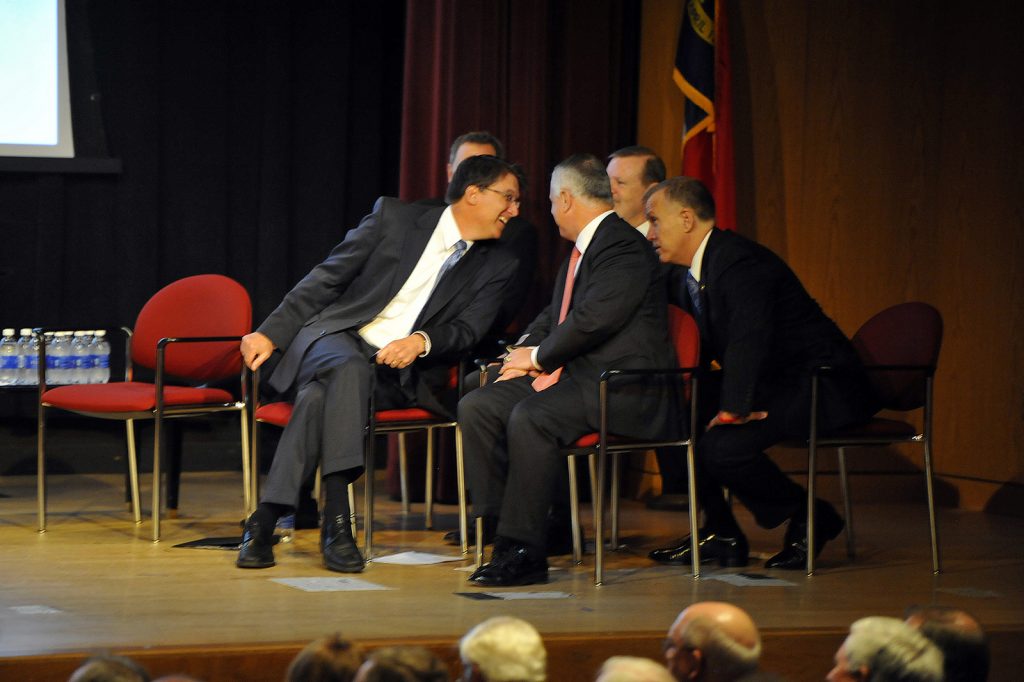
Governor Pat McCrory (Photo Credit: NCDOTcommunications Creative Commons 2.0)
On Thursday, the Department of Justice (DOJ) stated that allowing North Carolina to continue to enforce its voting laws “would inflict irreparable injury to minority voters” which regards to the upcoming election.
The law has already been deemed unconstitutional in the 4th Circuit of Appeals in a unanimous verdict.
Civil rights groups that challenged North Carolina’s voting law stated to the judges on the Appeals Court that “it would be a miscarriage of justice and inconsistent with with [the] Court’s precedents to permit North Carolina’s discriminatory voting law to remain in force through the 2016 election.” Furthermore, the Court stated in decent that the law targeted minority voters with almost “surgical precision.”
North Carolina Governor Pat McCrory has asked the Supreme Court to allow the State to maintain the law for the 2016 election. The voting laws that were in effect only allowed certain forms of photo identification to be used when voting, significantly limited the number of early voting days, and discontinued teenage voter pre-registration. Statistically, more minority voters use early voting days and many black and latino voters do not have the photo IDs needed to vote according to the new law.
Possible Outcomes
If the case does go to the US Supreme Court, due to the vacant seat of the late Justice Antonin Scalia, there is a possibility that the decision could be placed in “limbo” should the Supreme Court decision be split four-to-four. In the event of such a split decision, the appellate court ruling will stand. North Carolina has been complying with the Appeals Court’s decision since late July.
However, should the Supreme Court rule in favor of North Carolina’s voting law, the Appeals Court decision would be reversed and North Carolina’s new voting restrictions would be put back in place. With the elections taking place in November, the State of North Carolina would need to act swiftly in order to restore its law.



Leave a Comment